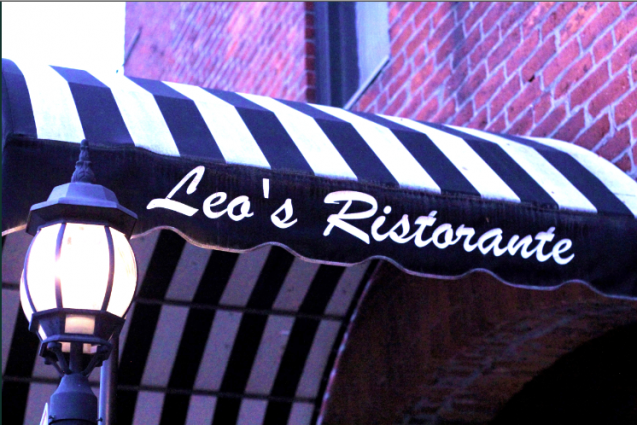
Regarded as the cultural bridge between the Middle Ages and modern history, the Renaissance was a period of growth and enlightenment as well as a period of linking the old ways with the new. This can also be said about today’s food scene in Central Massachusetts with the opening of dozens of new restaurants, bars and breweries. More specifically, Worcester has evolved into a trendy dining destinations and has been recognized as a food hub worth visiting leaving us to ask the question, ‘How will long-standing restaurants survive the inevitable Renaissance?’
This trend of small cities with large appetites is not new. Cities like Portland, Maine and McMinnville, Oregon have been undergoing a food evolution and becoming travel destinations for both novice and expert foodies. The food culture is changing but city staples like Silly’s restaurant in Portland, La Rambla in McMinnville and Leo’s Ristorante in Worcester are standing their ground and proving that success isn’t always about catching the next trendy wave.
“At Leo’s, we survive the changes in the food industry by serving standard tradition with the consistency of our recipes,” says Lee Hanson, owner of Leo’s Ristorante. “The best part is the personal touch we have with our customers.”
Hanson is the granddaughter of the original owner, Leonardo Turo, who opened the doors in 1960. With over three generations working at Leo’s, the notion of family keeps customers coming back for more. “These customers have seen me grow up and every time they come back, they bring the next generation with them. Grandparents bring their children and ultimately, their grandchildren and that is something special that you can’t find anywhere else,” says Hanson. While she understands the importance of traditions and sticking to the family legacy, Hanson also understands the importance of change. “Even though our traditional and long-standing recipes are what keep our customers coming back, we also try to incorporate some of the trends, especially those within the city, to stay relevant.”
Per the Family Business Review, more than thirty percent of all family-owned businesses survive into the second generation. Twelve percent will still be viable into the third generation, with three percent of all family businesses operating at the fourth-generation level and beyond. With Central Massachusetts running on old history and a multitude of family-owned restaurants, the odds are stacked up against them. However, at the infamous George’s Coney Island, the odds don’t matter.
“My grandfather, George Tsagarelis, bought this place in 1927, making us the third generation to own and operate our family business and it doesn’t seem like we are going anywhere,” says current owner, Katheryn Tsandikos. “Whatever we are doing to keep us in motion is not done deliberately. We often find ourselves trying to find the answers to questions like, ‘how do you do it?’ and “what’s your secret?’ but ultimately we just don’t know,” says Tsandikos. “For years, my grandmother would warn us about changing the business. She would tell us to always keep it the same and when she passed away in 2000, we did just that.”
George’s Coney Island may not have a playbook on surviving the test of time but the one thing they do have is an understanding of their customers. “I have never worked for another restaurant before so I truly believe that our family-atmosphere is what keeps our employees and customers happy. Our passion and love for the place carries over to our employees who in turn carry it over to our customers and we stick to what we are known for: hot dogs,” she laughed.
Could it be that while the new boutique-styled restaurants in Central Massachusetts are serving up flights of craft beers and exotic gelatos, the iconic restaurants serving the same menu for over fifty years are schooling the newbies on longevity? Maybe the secret of restaurant success is hidden in between the pages of grandma’s recipe book.
“My family has been in the restaurant business for over sixty-five years. Working in a restaurant is in my blood,” says Anthony Panarelli, owner of La Cucina Italiana. In the 1960s, Panarelli’s father and uncle opened the Italian Kitchen on Shrewsbury Street, and it quickly became an essential piece of the Italian community. Using some of the same dishes from the Italian Kitchen at the new La Cucina Italiana, Panarelli claims his survival of the food Renaissance is purely based on a few simple ingredients. “It is always about the recipes,” he says. Serving comfort foods and appealing to the classic phrase of “homecooked meals” with his eggplant Parmesan and sausage cacciatore keeps Panarelli afloat during the trying times of the food evolution.
There may be a strong forthcoming of change happening in Central Massachusetts but to be successful, the Renaissance must take the old with the new and build upon its food legacy. The Trendy vs home-style menu debate is only but an imaginary battle within the foodie network. The iconic George’s Coney Island proves true to the theories of Anthony Panarelli and Leo’s Ristorante: the success of a family-owned restaurant is hidden within their recipes and their love of their traditions, leading us to believe that there will always be room in the local food scene for momma’s cooking.
